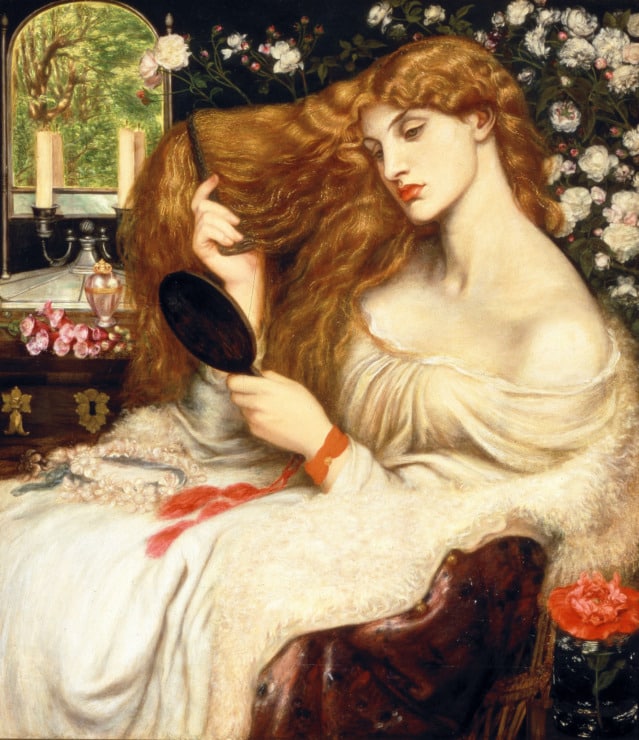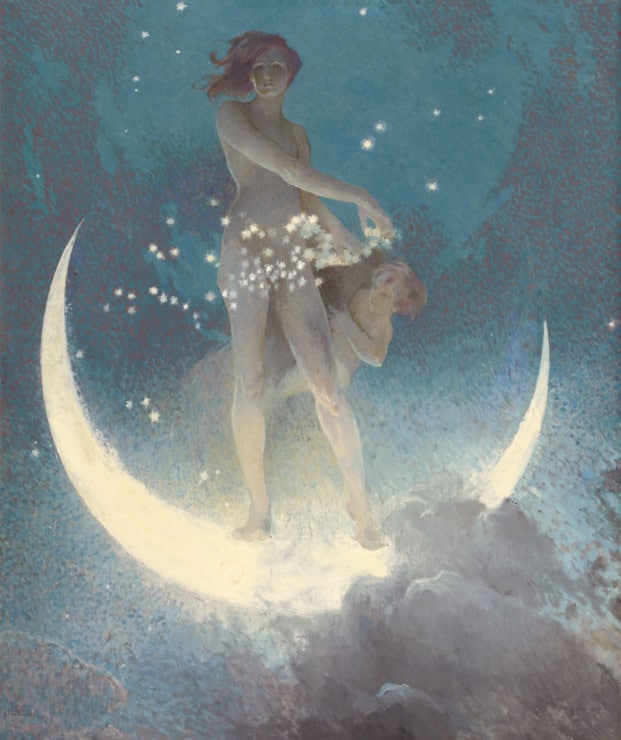< Return to all Wordsworth poems
She Was a Phantom of Delight
She was a Phantom of delight
When first she gleam’d upon my sight;
A lovely Apparition, sent
To be a moment’s ornament;
Her eyes as stars of Twilight fair;
Like Twilight’s, too, her dusky hair;
But all things else about her drawn
From May-time and the chearful Dawn;
A dancing Shape, an Image gay,
To haunt, to startle, and way-lay.
I saw her upon nearer view,
A Spirit, yet a Woman too!
Her household motions light and free,
And steps of virgin liberty;
A countenance in which did meet
Sweet records, promises as sweet;
A Creature not too bright or good
For human nature’s daily food;
For transient sorrows, simple wiles,
Praise, blame, love, kisses, tears, and smiles.
And now I see with eye serene
The very pulse of the machine;
A Being breathing thoughtful breath;
A Traveller betwixt life and death;
The reason firm, the temperate will,
Endurance, foresight, strength and skill;
A perfect Woman; nobly plann’d,
To warn, to comfort, and command;
And yet a Spirit still, and bright
With something of an angel light.
—William Wordsworth
Enjoy Artistic Representations of “She Was a Phantom of Delight” by William Wordsworth

Lady Lilith by Dante Gabriel Rossetti, 1866.

Spring Scattering Stars
by Edwin Blashfield, 1927.
Listen to these Readings of “She Was a Phantom of Delight”
Listen to these Musical Interpretations of “She Was a Phantom of Delight” by William Wordsworth
About William Wordsworth
William Wordsworth, an English poet born in 1770, is credited with having a strong impact on the poetry of his time. He worked with Samuel Taylor Coleridge to publish a collection, Lyrical Ballads, which includes poems believed to be among the most influential in Western literature. With this publication, the two helped initiate English literature’s Romantic Age.

Jerwood Centre at the Wordsworth Trust in Grasmere
Wordsworth also worked to increase the accessibility of poetry, encouraging the use of more common language, and promoting the virtues of lyric poetry.
While in college, Wordsworth went on a walking tour of England and lived for a time in France, where he was greatly impacted by the French Revolution. His earliest work was published in 1793.
His most famous work, The Prelude, was published by his widow in 1850. He worked on the semi-autobiographical poem throughout much of his life, never quite satisfied to publish it.
Wordsworth served as England’s Poet Laureate from 1843 until he died in 1850.